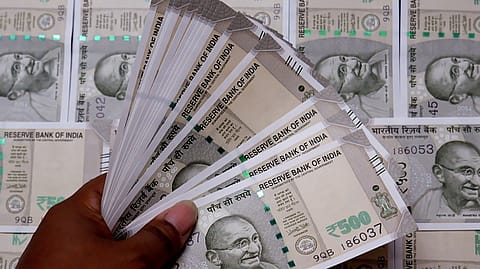Old pension scheme to exert huge burden on state finances: RBI
There is a need for review of the current system of grants from the Centre to the states, says RBI.

The return to the old pension scheme in a few states and reports of some other states moving in the same direction would exert a huge burden on state finances and restrict their capacity to undertake growth-enhancing capital expenditures, according to the Reserve Bank of India (RBI).
Internal estimates suggest that if all the state governments revert to OPS from the National Pension System (NPS), the cumulative fiscal burden could be as high as 4.5 times that of NPS, with the additional burden reaching 0.9% of GDP annually by 2060, the RBI says in its State Finances report. This will add to the pension burden of older OPS retirees whose last batch is expected to retire by early 2040s and, therefore, draw pension under the OPS till the 2060s, the central bank says.
Any reversion to OPS by the states will be a major step backwards, undermining the benefits of past reforms and compromising the interest of future generations, warns the RBI.
Some states have budgeted for fiscal deficits exceeding 4% of gross state domestic product (GSDP) in 2023-24 as against the all-India average of 3.1%. They also have debt levels exceeding 35% of GSDP as against the all-India average of 27.6%. Any further provision of non-merit goods and services, subsidies, transfers and guarantees will render their fiscal situation precarious and disrupt the overall fiscal consolidation achieved in the last two years, the banking regulator says.
States need to address several challenges to ensure fiscal sustainability, according to RBI. “Going forward, there is a need for scaling up fiscal capacity for uninterrupted and efficient delivery of social, economic and general services to the people and for upgrading the quality of physical and human capital. GST implementation has led to greater formalisation of the economy which is important from the point of view of expanding the tax base, without unduly raising the tax burden. Improvement in tax administration, including data analytics to curb tax evasion, will likely augment fiscal capacity of the states. In addition, the institutional strength of States’ revenue departments should be enhanced for effective implementation of policies and regulations. To incentivise such efforts, financial incentives to those States that initiate measures to boost tax revenue collections may be considered,” the report suggests.
States need to scale up their initiatives for asset monetisation in order to increase non-tax revenue, the RBI says. Monetisation of assets unlocks their value, eliminates their holding cost and enables scarce public funds to be deployed into new projects, thus fast-tracking new infrastructure creation. “State governments need to tap into their sizeable infrastructure asset base, with significant potential in roads, transport and power sectors. A comprehensive review of unutilised land assets and their conversion into revenue generating industrial estates or monetising them by outright sale would also help to mobilise revenues. Similarly, in the case of non-operational public sector undertakings (PSUs), states may expedite their liquidation to curb losses,” it says.
Mining is an important source of non-tax revenue for the mineral-rich States. “A robust mechanism to prevent, detect and curb illegal mining activities would shore up their revenues. The use of modern technologies such as, Geographic Information Systems (GIS) and Drone Surveys may be utilised by the states for identifying and curbing illegal mining activities,” the report adds.
Recommended Stories
There is also a need for review of the current system of grants from the Centre to the states, as per the central bank. “Currently, revenue deficit grants are disbursed to those States which are assessed to have high revenue deficits post tax-devolution. Such protected revenues could disincentivise the states from carrying out fiscal reforms. Going forward, the Finance Commissions could consider recommending an increased share of conditional transfers based on reforms, quality of expenditure and fiscal sustainability to harness healthy competition across states towards improving their economic performance,” the report states.
Hilly and north-eastern states are more dependent on central transfers due to limited sources. For many of these states, the central grants account for more than 30% of total revenue receipts. Among the larger states, Assam, Punjab, Andhra Pradesh, West Bengal, Madhya Pradesh, Bihar and Kerala are most reliant on the Central transfer, with a fifth of their revenue coming in the form of grants.